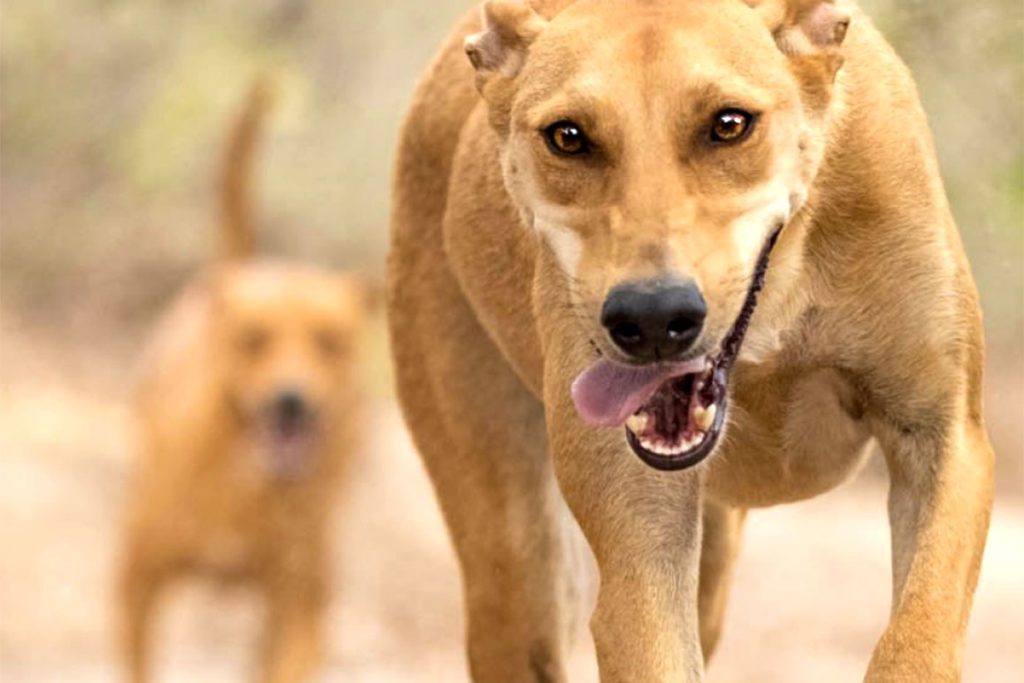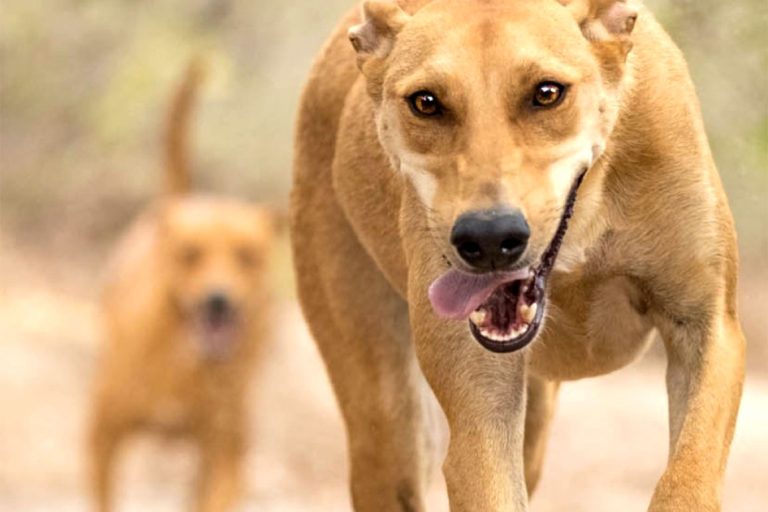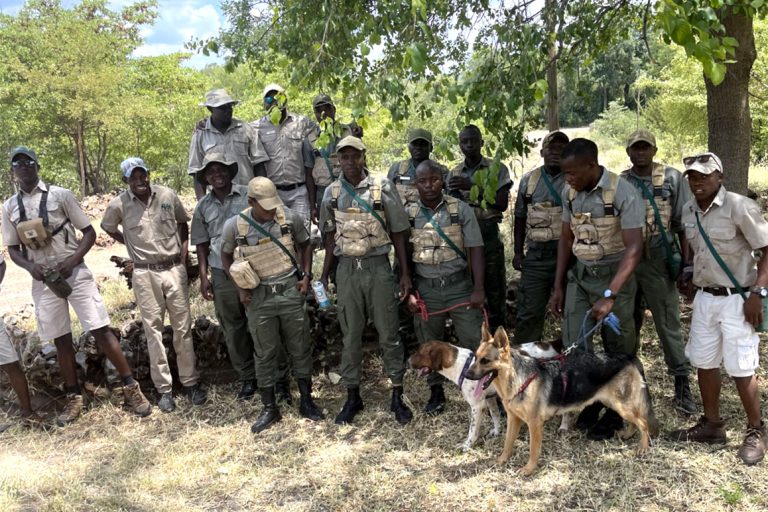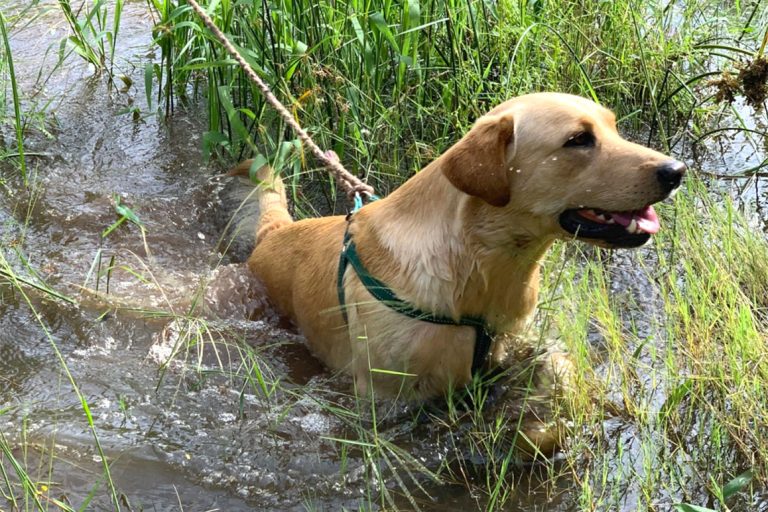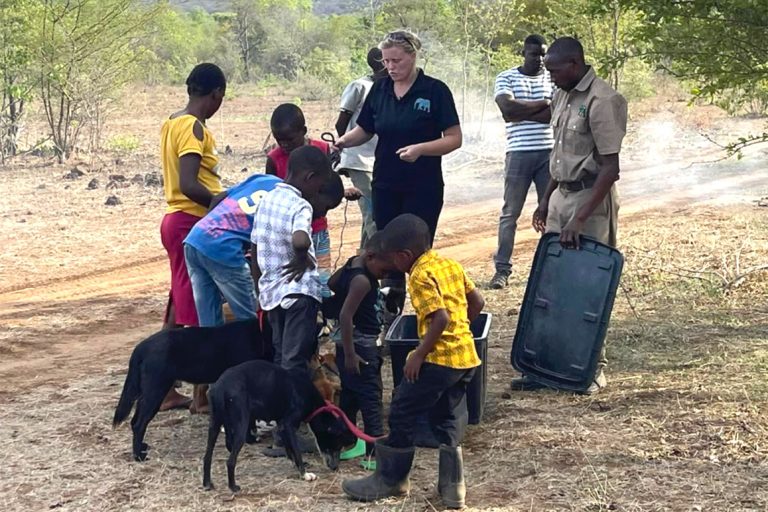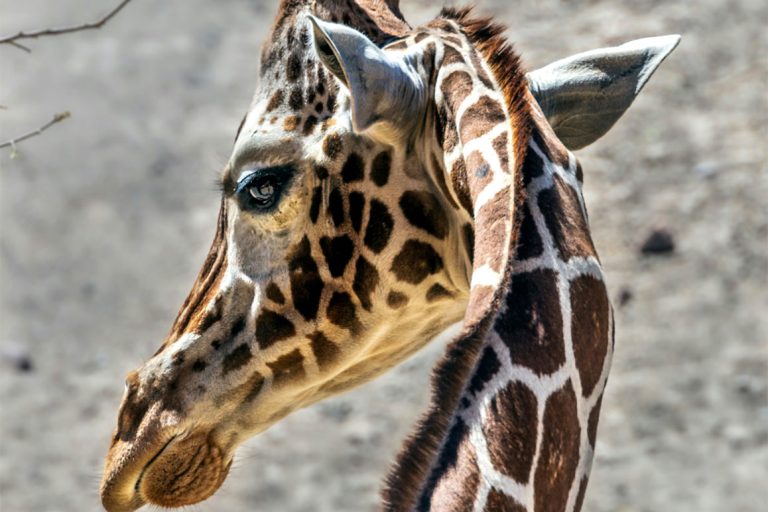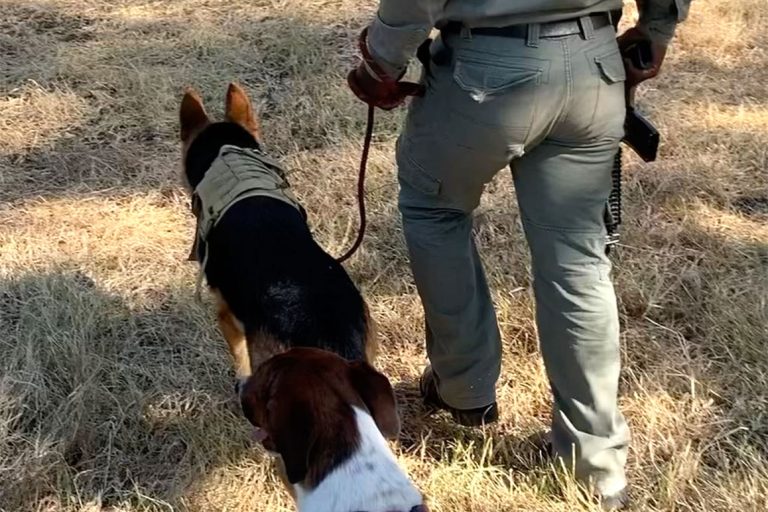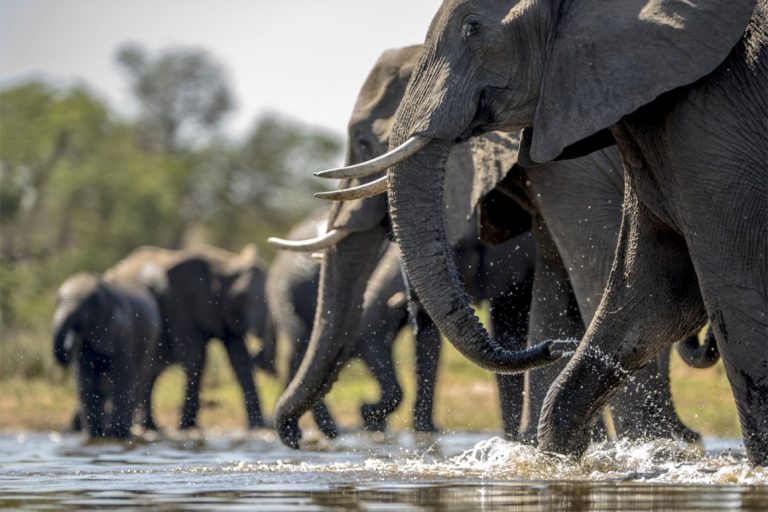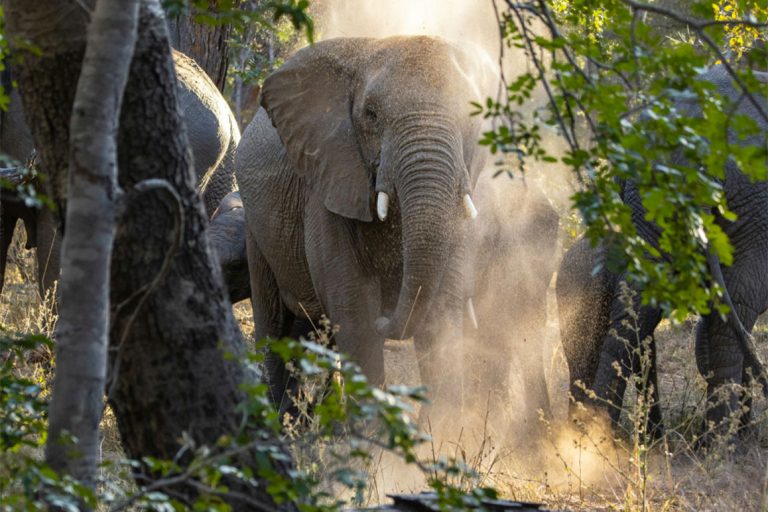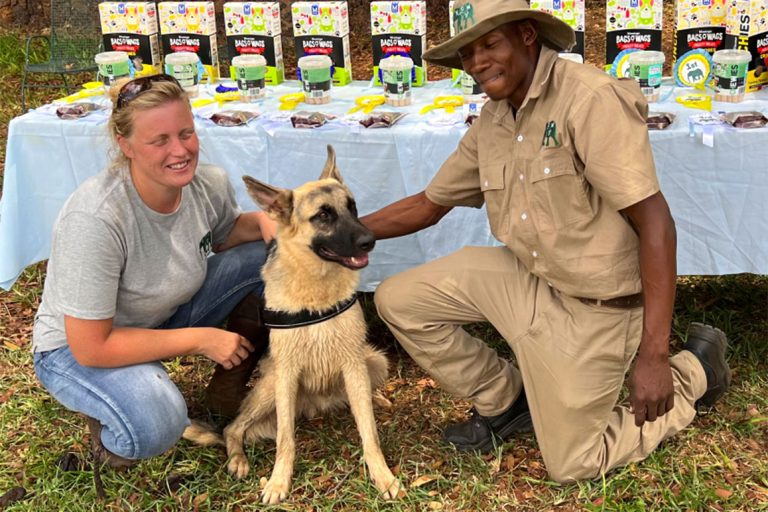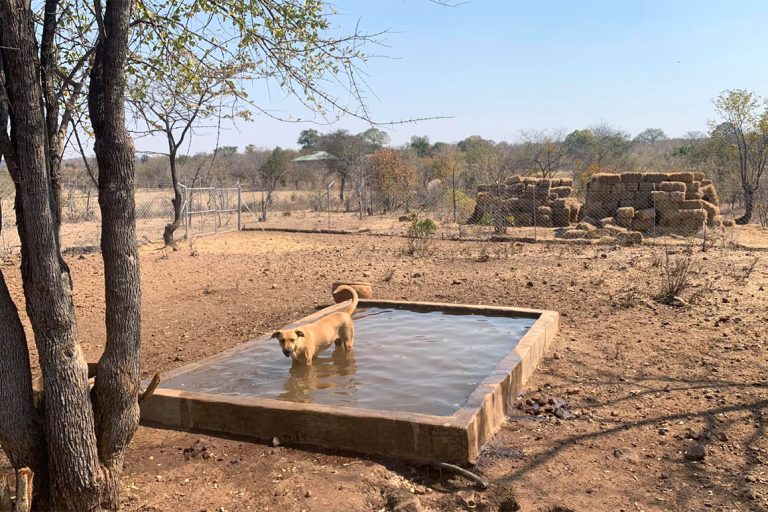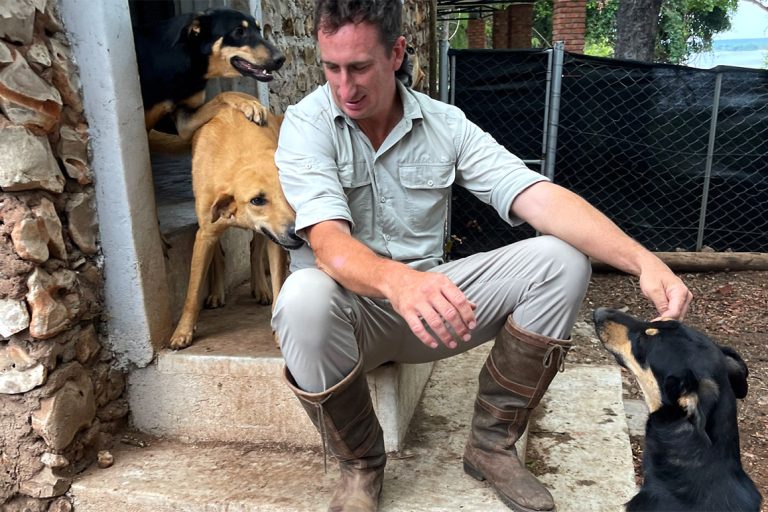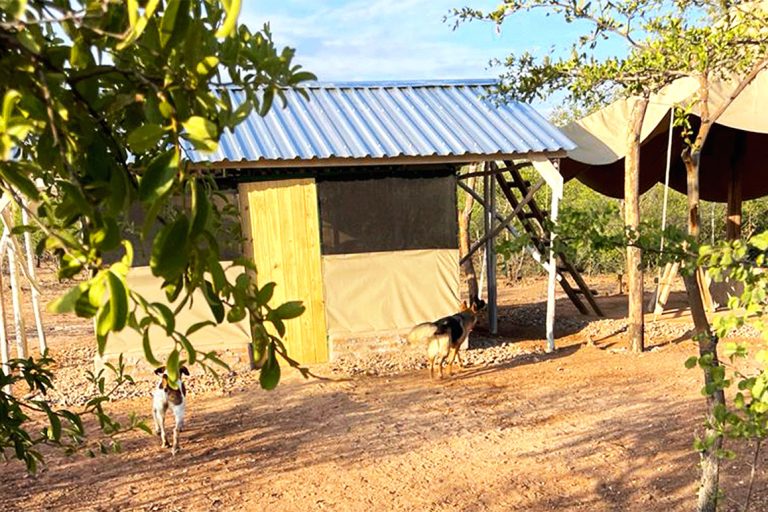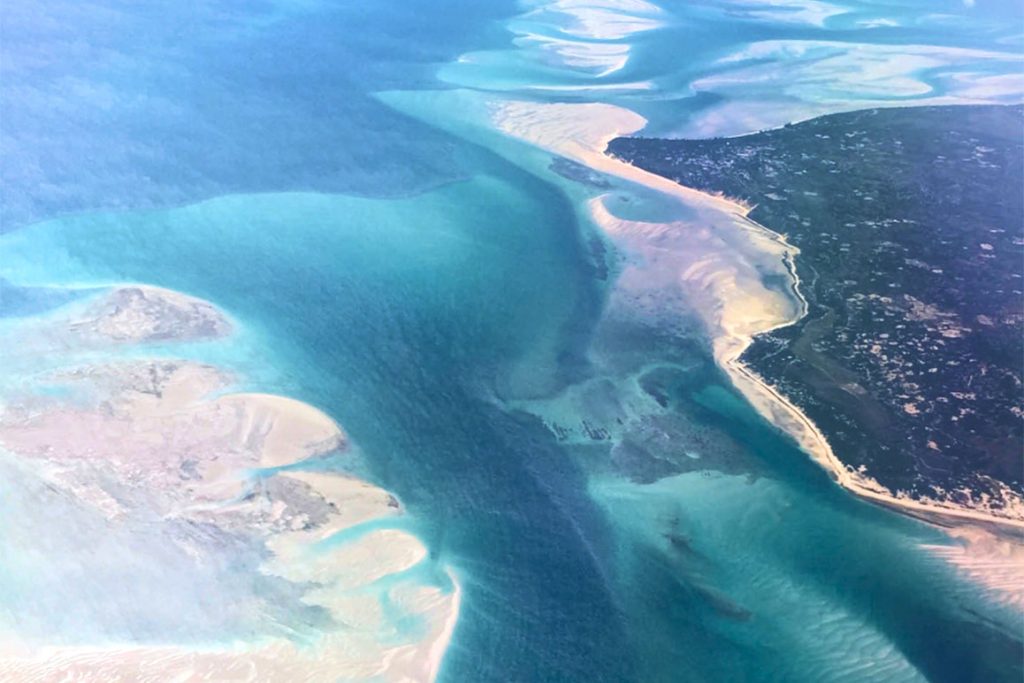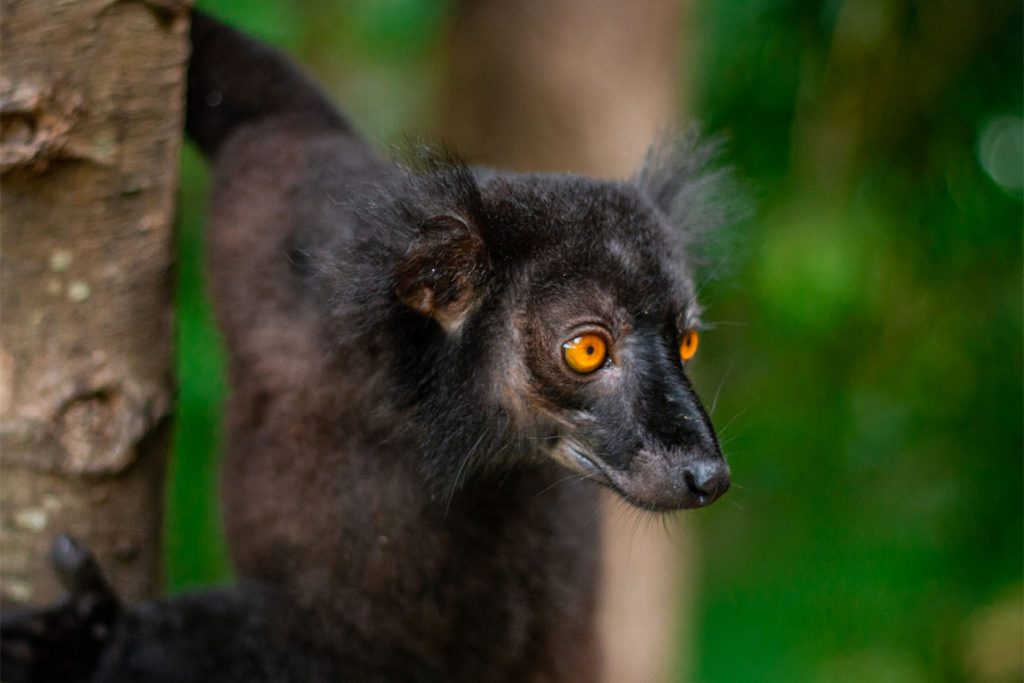- Overview
- Itinerary
- Rates
- Accommodation
- Included
- Excluded
- Flights
- Sustainability
- Gallery
Train dogs for conservation
Embark on an expedition to Monde Village, located just outside Victoria Falls, Zimbabwe, to train rescue dogs for wildlife conservation. Help dogs from overcrowded shelters find a new purpose by providing basic training and care. Learn valuable skills from professional canine handlers. You’ll also experience life in a rural community near wildlife reserves where rhinos, elephants, lions, wild dogs and other species roam.
Experience the bond between dogs and humans
Humans and dogs have long had a special bond – an ability to communicate and look after one another that transcends species. Dogs also have incredibly heightened senses, allowing them to follow days old trails and detect animal products hidden from our view. Organisations are increasingly recognising the vital role that conservation canines play in detection, tracking and anti-poaching efforts.
What to expect on this unique expedition
On this 7 day, 6 night expedition, you'll have unique opportunities to care for rescue dogs while assisting handlers with their training protocol. Anti-poaching, tracking and detection work require highly technical training skills. Taking care of the dogs is equally important and requires your special contribution.
Here’s a glimpse of what you can expect:
- Knowledge sessions: Learn the theory of tracking and canine behaviour and psychology.
- First aid to care: Learn canine first aid to care for injured or distressed dogs during rescue missions.
- Prepare dogs: For search and rescue operations, including locating missing persons.
- Conduct training: For scent detection in different environments with various materials.
- Teach dogs: To detect medical changes in human physiology, such as blood sugar levels or seizures.
- Conduct: Tracking and snare sweeps in various terrains.
- Provide: Animal welfare and dog training education with local community members to foster positive human-animal relations.
Why rescue dogs?
Conservation canines (such as scent-detection dogs, anti-poaching dogs and tracking dogs) are integral to wildlife conservation for their exceptional detection abilities, including their keen sense of smell and hearing. Within wildlife reserves, they are used to track and locate wildlife, follow the trails of poachers, and detect illegal wildlife products like ivory or pangolin scales. Their presence also helps reduce human-wildlife conflicts and promotes peaceful coexistence.
By employing dogs in conservation efforts, organisations enhance efficiency in wildlife monitoring, law enforcement against poaching, and community engagement in conservation initiatives.
See the itinerary for an example of what you can look forward to >
Physical rating: 4/5.
Moderate physical activities are included and a good level of fitness is required.
No two days are the same when training conservation dogs in Zimbabwe
Each day holds its own suspense, adventure and surprises. But one thing is guaranteed – magic. Every day on your expedition will be a combination of exciting activities, dog conservation training experiences, and relaxation. Greet each sunrise with a hot cup of coffee or tea. Head out for your morning activity, then enjoy breakfast back at base camp followed by free time to lounge around, read a book or take a nap. At the end of each day, you’ll enjoy a delicious meal together and sit around the campfire to share stories under the stars.
The following itinerary is an example of a typical week with activities and project work that you may get involved in during this Expedition. Note that the actual itinerary for this expedition will be structured around your required dates after submitting the enquiry form
Itineraries
Day 1
Arrival at your home away from home

Welcoming high tea:
“Mhoroi!” Welcome! After arrival at your lodge, settle in and enjoy a high tea together.
Theory
You'll first get an introduction to the theory on tracking and canine behavior and psychology.
Day 2
Knowledge sessions

Search & rescue training
Prepare canines for various scenarios, including locating missing persons in wilderness areas through training in obedience, agility, scent detection, and navigation skills to effectively cover large areas and locate individuals in diverse environments. Focusing on their abilities and temperament to teach these specialized skills.
Day 3
Dog Training

Scent detection training
Work with the dogs to identify specific odors in different environments associated with various materials, objects or animals by utilizing their highly sensitive noses.
Day 4
Community Engagement

Provide animal welfare and dog training education
Promote responsible pet ownership and foster positive relationships between humans and animals by educating the local community on basic dog care, behavior management, and the importance of spaying/neutering their dogs.
Day 5
Medical Issues

Medical alert training
Focus on teaching dogs to detect changes in human physiology, such as blood sugar levels or impending seizures, and alert their handlers to potential medical emergencies.
Day 6
Anti Poaching

Tracking and snare sweeps
Locate missing persons/animals or detect traps set by poachers or hunters by allowing the dogs to follow scent trails over various terrains, utilizing their keen sense of smell and tracking instincts.
Day 7
Conservation as a Focus

Ethical conservation
Learn about ethical conservation practices and a lot more.
$1,945* per person for the full trip duration
*Valid to December 30, 2024. This daily rate is an indication only as prices may vary according to your specific requirements. A quotation for this trip will be emailed to you after submitting the Trip Enquiry.
2025 rate: $2,045 per person - valid January 01 to December 30, 2025.
Terms: All bookings are subject to availability and single supplements may apply.
Guests will stay in an eco-friendly solar-powered camp that reflects Zimbabwean cultural traditions, including communal spaces and shared responsibilities. Accommodation is in tents, with each tent housing up to four participants in bunk beds. Shared facilities include two toilets and two showers, while an adjacent outdoor kitchen and dining area under a gazebo provides a communal space for cooking and meals.
The area is landscaped with trees for shade and an open space where dogs roam freely. An above-ground pool offers a welcome retreat in the hotter months. Wi-Fi is available at the accommodation, and purchasing a local SIM card is recommended for phone calls and internet access with top-up credit. Hand washing soap and buckets are provided, with an option for laundry services at an additional charge.
For those seeking more privacy, an upgrade to a private room at a nearby lodge, just a 5–10 minute walk away, is available for an additional cost.
- Project work: Care, training and tracking with our rescue dogs to support wildlife conservation efforts.
- Highly qualified and experienced instructors and field staff.
- Accommodation: Tented camp featuring shared units with bunk beds and shared bathroom facilities. (see tab)
- All Meals: Breakfast, lunch, and dinner are included, consisting of simple local dishes.
- Airport transfer: You'll be collected from Victoria Falls International Airport (VFA).
- Pre-departure support: Includes an Essential Info Pack and answering any questions you might have.
- Basic in-country support: Receive info packs with local resources, clinic details. In emergencies, consult packs; contact Program Manager if needed.
- Project transport: Transport to and from project work locations.
- 24-hour Emergency desk.
- Flights (see tab to book flights)
- Airport taxes
- Visas
- Vaccines
- Medical insurance
- Travel insurance
- Personal belongings insurance
- Cancellation insurance
- Personal gear and kit
- Soft drinks and alcoholic beverages
- Additional spending money
- Gratuities.
You will need to book your own flights to and from Victoria Falls Airport (VFA). Our handy airline aggregator will find the best seat prices for your dates.
Note:
- We strongly advise waiting to book your flight until your Expedition trip is confirmed, as we need a minimum number of participants to proceed.
- You can always come back to this tab and book flights later.
- If you decide to book flights earlier, please opt for flexible tickets to accommodate potential changes.
Sustainable Development Impact
While the United Nations Sustainable Development Goals (SDGs) are global concerns, and not aimed specifically at the travel and tourism industry, target 8.9 of the 2030 Agenda aims to "by 2030, devise and implement policies to promote sustainable tourism that creates jobs and promotes local culture and products". In this regard, tourism has the potential to contribute, directly or indirectly to all 17 SDGs.

Travel with Purpose
GVI Global’s expeditions and volunteer programmes address all 17 SDGs. In particular, GVI prioritizes 10 critical global issues affecting both people and the planet:
- Plastic pollution and litter,
- Climate change,
- Endangered species,
- Biodiversity loss,
- Sustainability,
- Early childhood development,
- Education for both children and adults,
- Gender equality,
- Health, and
- Justice, equity diversity, and inclusion.
Considering the track history and documented evidence of GVI's commitments to conservation and community upliftment, Naturecrazi considers their respective SDG "qualifying criteria" as follows:
- SDG 1: Creates fixed term and permanent job opportunities for local communities and aims to support people harmed by climate-related extreme events and other economic, social, and environmental shocks and disasters.
- SDG 2: Aims to end hunger, achieve food security, improve nutrition, and promote sustainable agriculture.
- SDG 3: Ensures healthy lives and promotes well-being for all at all ages.
- SDG 4: Contributes to sustainable local community development through education programs and research.
- SDG 5: Aims to achieve gender equality by ending all forms of discrimination, violence, and any harmful practices against women and girls.
- SDG 6: Provides for careful handling and disposal of solid waste and sewage. Uses alternative, sustainable means of water acquisition and reduces water consumption.
- SDG 7: Meets its energy needs through passive design and renewable energy resources.
- SDG 8: Promotes economic growth, full and productive employment, and decent work for all.
- SDG 9: Builds resilient infrastructure, promotes sustainable industrialization, and fosters innovation.
- SDG 10: Reduces inequality within and among countries.
- SDG 11: Makes human settlements inclusive, safe, resilient, and sustainable.
- SDG 12: Encourages sustainable consumption and production patterns through various measures, including the management of materials that are toxic to the environment.
- SDG 13: Takes urgent action to combat climate change and its impacts by improving education and awareness-raising on climate change mitigation, adaptation, impact reduction and early warning.
- SDG 14: Conserves and sustainably uses the oceans, seas and marine resources for sustainable development.
- SDG 15: Conserves and rehabilitates the surrounding flora and fauna. Aims to protect, restore, and promote sustainable use of terrestrial ecosystems, sustainably manage forests, combat desertification, and halt and reverse land degradation and halt biodiversity loss.
- SDG 16: Aims to promote peaceful and inclusive societies for sustainable development, provide access to justice for all, and build effective, accountable, and inclusive institutions at all levels.
- SDG 17: Aims to strengthen the means of implementation and revitalize the global partnership for sustainable development in 2030.


